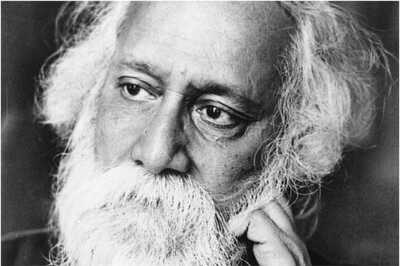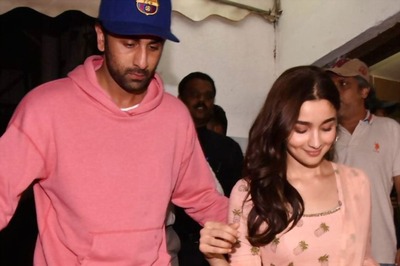
views
New Delhi: A Constitutional amendment bill providing reservation for Scheduled Castes and Scheduled Tribes in unaided private educational institutions was introduced in Lok Sabha in Tuesday amid reservations by Left parties, RJD and BJP.
The Constitution (104th Amendment) Bill, piloted by HRD Minister Arjun Singh, excludes minority educational institutions from its purview.
As the Government announced that the Bill would be introduced in its "present form" in the Lok Sabha, the entire NDA decided to oppose it.
Though the BJP had already declared its opposition to the Bill, the Government was counting on support from other NDA constituents to muster the required two-third majority for its passage in the Lok Sabha.
But after a NDA meeting on Tuesday, JD(U)'s Prabhunath Singh said the alliance had taken a decision to oppose the proposal in the amendment exempting minority institutions from the ambit of the Bill.
The NDA also demanded that quotas for Dalits Muslims be included in the draft.
"Most of the so called minority institutions are commercially-run and reservations should be applicable to them too," Singh said.
BJP's V K Malhotra added that the bill should be applicable to all institutions and that the NDA had unanimously agreed that the clause exempting minority institutions should not be there.
Later, Parliamentary Affairs Minister Priya Ranjan Dasmunsi said he was hopeful that the Bill would be passed. He said the Government would talk to the Opposition parties, including BJP.
On NDA's decision, Dasmunsi said that whatever would the fate of the measure, the message would go loud and clear as who was for providing protection to the SC, ST and OBCs.
The Bill's introduction was deferred last week because of the concerns raised by OBC MPs and the CPI(M).
At present, reservation of seats for SCs, STs and Other Backward Classes (OBCs) in admission to educational institutions is derived from provisions of Article 15(4) of the Constitution.
The number of seats available in aided or state maintained institutions, particularly in respect of professional education, is limited in comparison to those in private unaided institutions.
The new bill seeks to amplify Article 15 to provide for similar reservation for SCs, STs and OBCs in unaided educational institutions.
The new clause will enable Parliament as well as State Legislatures to make appropriate laws for this purpose, Singh said in the statement of objects and reasons for the bill.
Singh said Article 30(1) provides the right to all minorities to establish and administer educational institutions of their choice and it was essential that such rights were protected.
Accordingly, institutions declared by the state to be minority ones are omitted from the purview of the new provision.
Singh said the ultimate objective was to provide reservation to these segments in educational institutions.
D P Yadav, RJD, wanted government to incorporate "socially and economically backward" classes in the bill. He also felt OBCs would not be able to take advantage of reservation in institutions like JNU.
Santosh Gangwar, BJP, contended that despite assurances, the interest of OBCs was not protected while Ram Gopal Yadav of the SP said government has categorically assured that OBCs would get the benefit of the new law.
V Radhakrishnan, CPI-M, who was supported by C K Chandrappan (CPI), contended that it should be left to states to identify which was a minority institution.




















Comments
0 comment